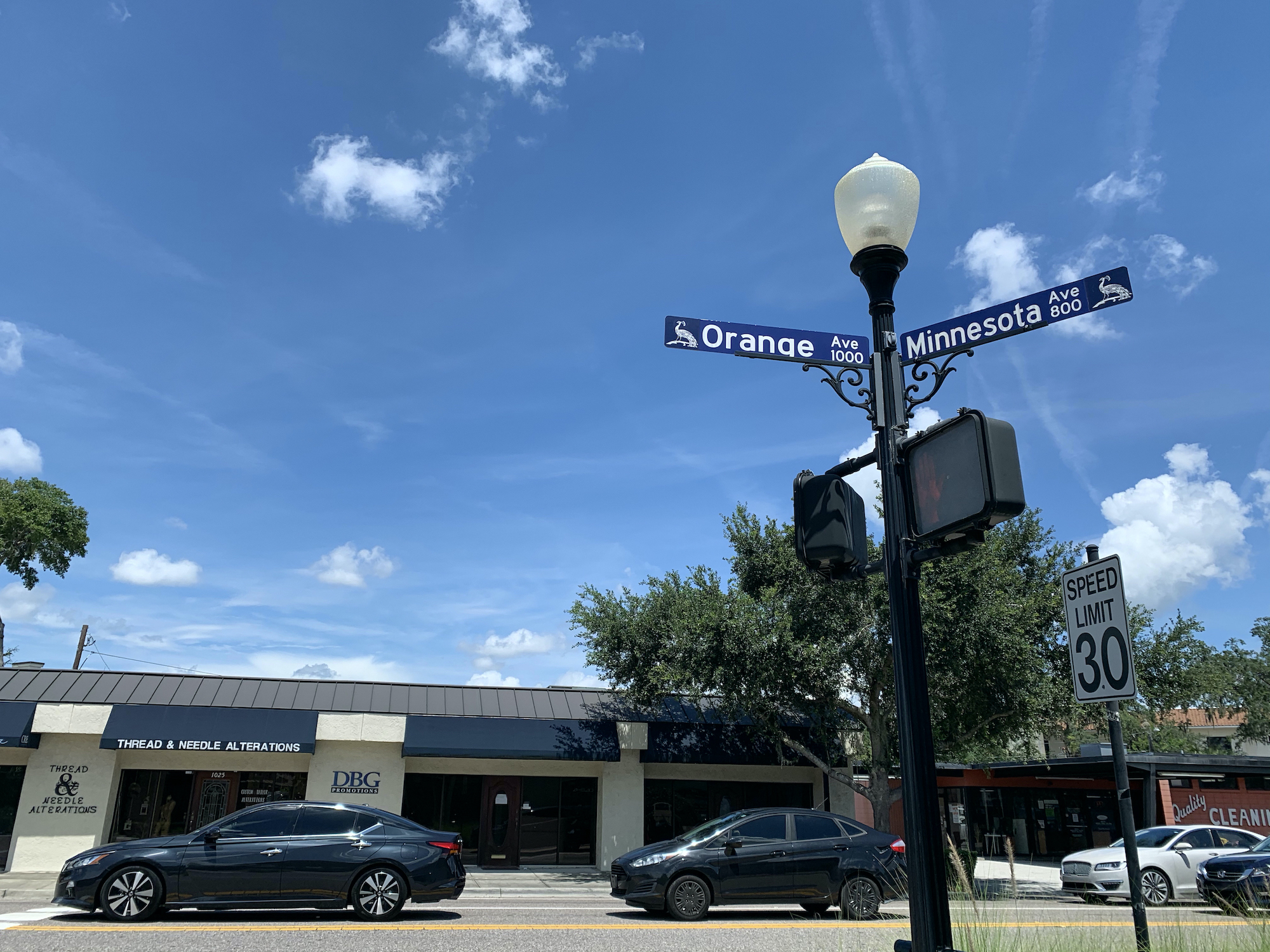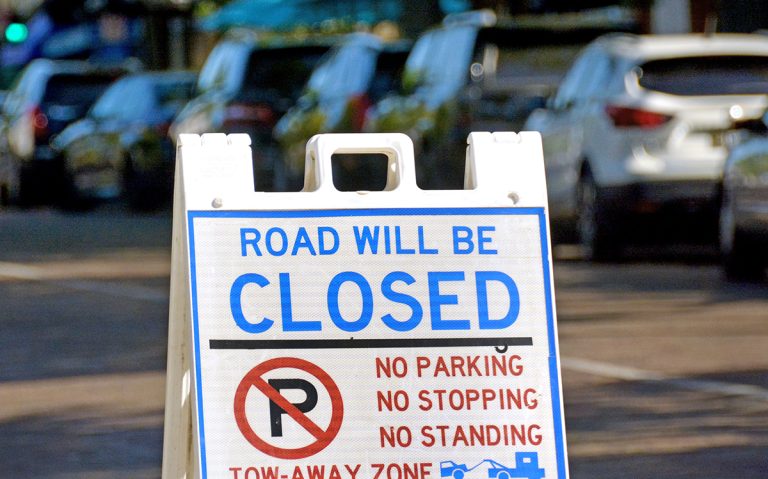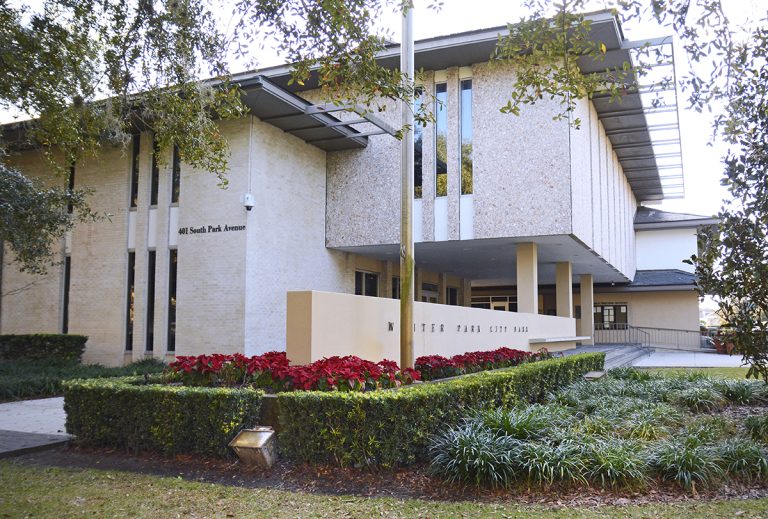A contingent temporary construction moratorium brought the future of the controversial Orange Avenue Overlay (OAO) district into question yet again at the latest Winter Park City Commission meeting. Despite exceedingly clear denial of the ordinance by the Winter Park Planning & Zoning Board and community members, the moratorium was approved at the meeting with a 4 to 1 vote, temporarily prohibiting new construction in the area. Winter Park Mayor Steve Leary cast the single vote against the ordinance.
In April, the commission overturned a formerly approved overlay district plan that would have allowed extensive new development on Orange Avenue spanning from U.S. Highway 17-92 to Fairbanks Avenue. Three years of extensive planning, unanimous support from the planning & zoning board and significant public input went into the previous OAO. In response to the commission rescinding the overlay earlier this year, concerned developers filed lawsuits against the city that are currently pending with the Ninth Judicial Circuit Court of Florida.
Commissioners Carolyn Cooper, Todd Weaver, Marty Sullivan, and Sheila DeCiccio approved the ordinance for the temporary construction moratorium as a preventative measure should the lawsuits succeed in court. The ordinance will prevent new development of the overlay district for nine months. The commissioners argue that this moratorium will allow them the necessary time to adopt revisions to the overlay.
“We as a commission are confident in our attorney’s position, but like with any lawsuit there is always a risk and if this commission is clearly opposed to the way the Orange Avenue Overlay is written today, then our only choice is to work diligently to amend it,” Commissioner Cooper said. “But, should for some reason [the lawsuits] be supported by the court system prior to the time that we are finished, we need to have something ready that says you cannot build in accordance with those revised codes that were initially brought into the system under the OAO.”
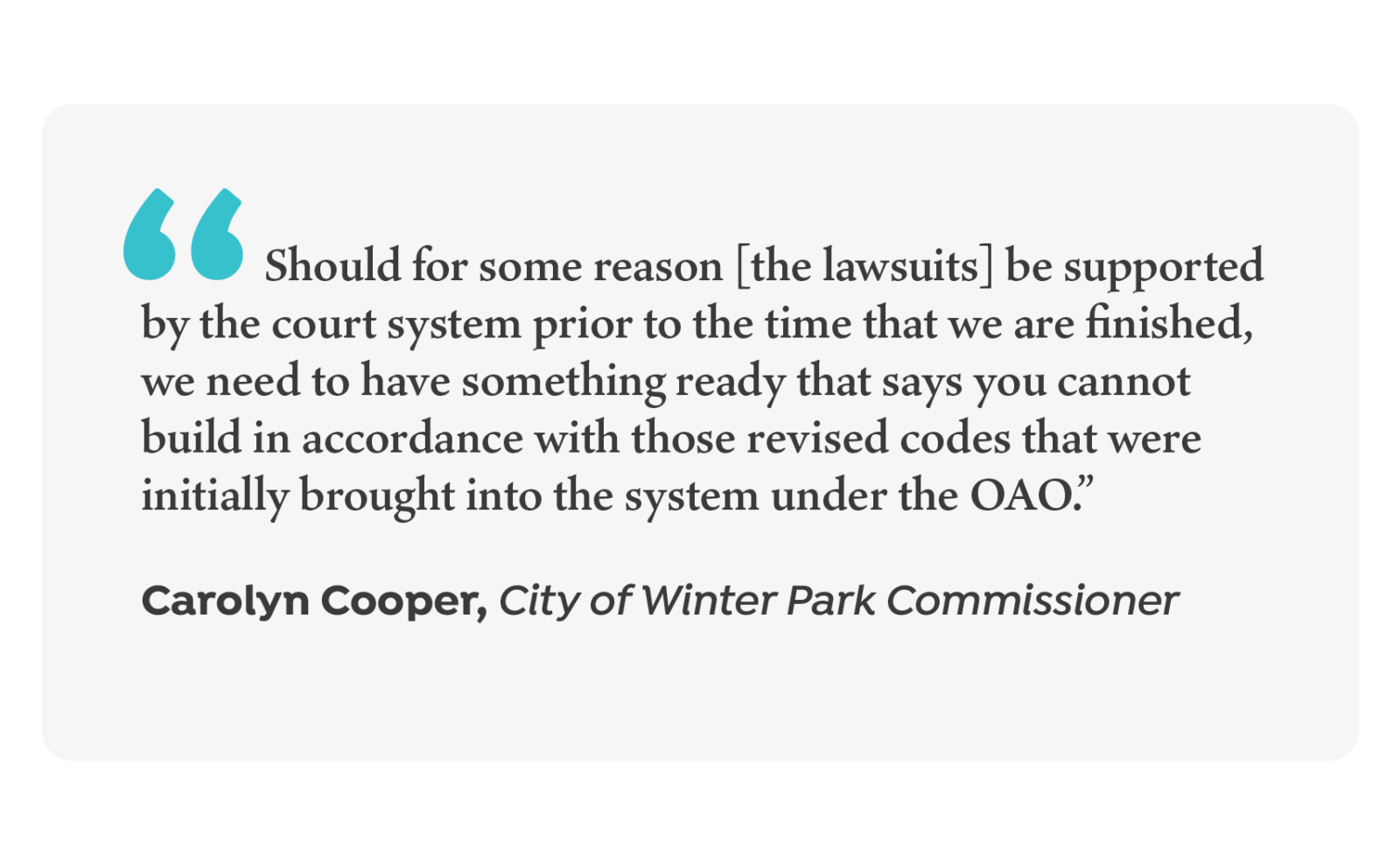
Commissioner Weaver added “the reason the previous OAO ordinance was rescinded is because this commission did not have the adequate data that we felt was necessary to allow the entitlement contained there.” He went on to explain that he did not feel comfortable with the proposed plans to increase walkability of the avenue and that he and the commission require more information to plan for such changes properly.
Four traffic studies were conducted on the overlay district and are available to view publicly through the City’s website. The studies indicate several options that could be implemented to alleviate traffic conditions along the corridor as a result of increased traffic or congestion that may come as a result of new development. All these studies were completed and released prior to the commission’s decision to rescind the original OAO on April 13. Also available is a letter from the Florida Department of Transportation from February, which reads, “the proposed amendment reorganizes the development within the city to foster a more multimodal urban fabric. The proposed amendment is not anticipated to result in significant adverse impacts to the State Highway System and/or the Strategic Intermodal System.”
Despite the already available studies funded by taxpayer dollars, none of which indicate any unresolvable traffic issues as a result of the OAO plan, the commission has opted to allot an additional $140,000 to conduct a fifth traffic study. Mayor Leary finds that the cost of this additional study is not justified. “I believe it wasteful to spend hundreds of thousands of dollars to develop materials for a grant application that doesn’t exist for a program that doesn’t exist, nor additional traffic studies that our traffic consultant has indicated are unnecessary,” Mayor Leary said.
The commission’s decision was in direct opposition to the recommendation of the planning & zoning board. Bronce Stephenson, Director of Planning and Community Development, opened the discussion by sharing that the board strongly and unanimously recommended the denial of the moratorium. The board expressed concern that this was an improper use of a moratorium and not a decision that was the commissions to make.
Stephenson’s statement on behalf of the planning & zoning board was followed by public input from multiple individuals asking the commissioners to vote against the moratorium. It seemed to be the consensus of the speakers that the moratorium was not in the best interest of Winter Park residents or businessowners.
The first speaker in the public input segment of the meeting was Michelle Heatherly, Winter Park resident and director of strategic development for Demetree Global, a property owner on Park Avenue that has been heavily involved in the OAO. “This moratorium ordinance is pulling the rug out from underneath all of the property owners, large and small, who worked for such a long time with city staff and the steering committee to produce a great work product,” Heatherly said. “This moratorium feels purely like a backstock for a repeal ordinance that may not have followed proper process and procedure… This seems like a legal maneuver rather than a planning maneuver; this seems very murky and cloudy.”
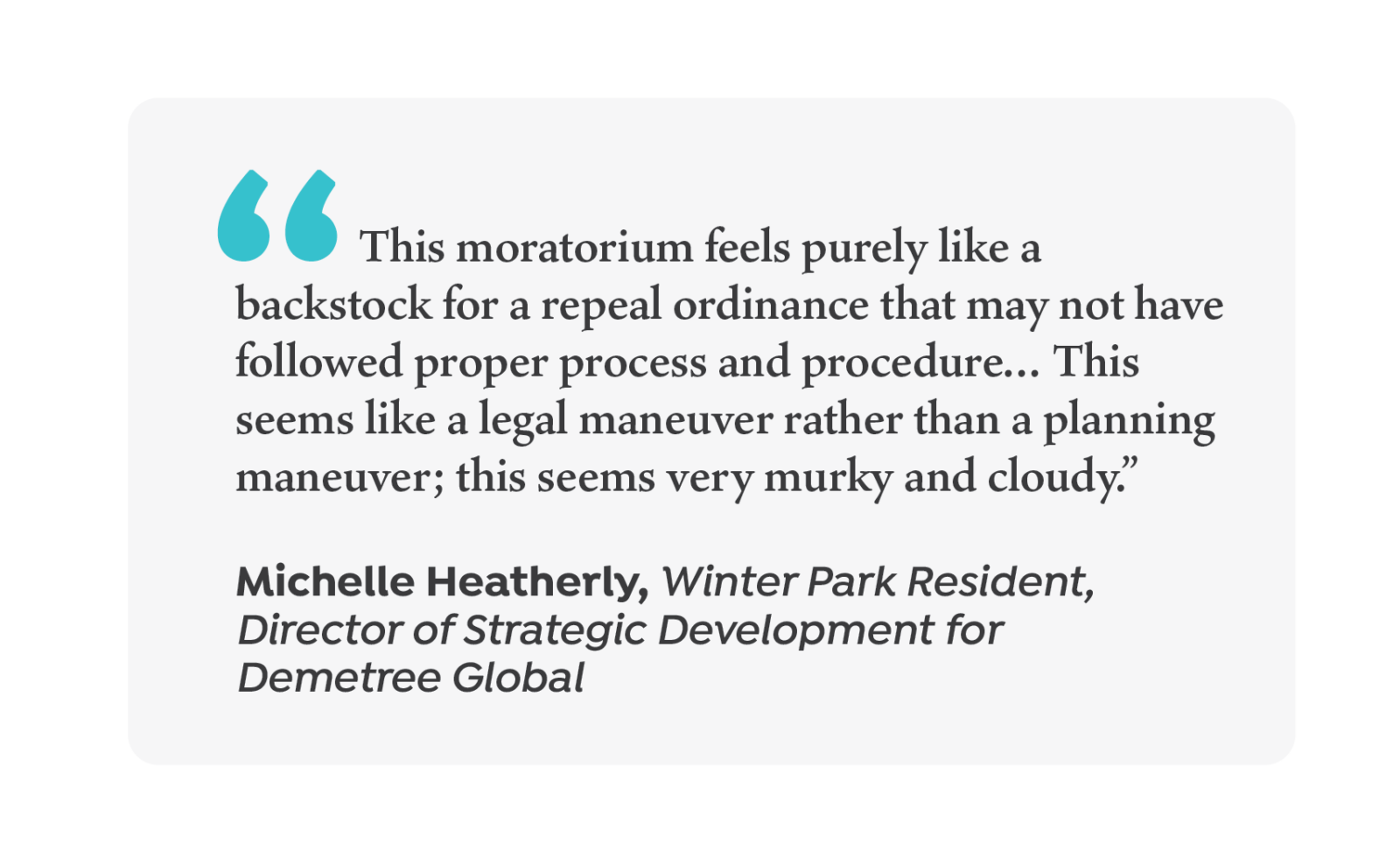
Another Winter Park resident, Michael Carolan, later spoke, adding “I believe that the end result [of the original OAO] set the city up for a private-public win-win partnership that other municipalities would have looked to as a model.” Carolan shared his disappointment with the rescission of the original overlay, stating that this moratorium would only lead to further spending on litigation that could be used to benefit the community in different ways. “The commission has repeatedly stated a goal of activating the OAO corridor and this will require a partnership with the private sector,” Carolan said. “I think there is a trust gap at the moment with the private sector following the actions of the commission and subsequent failure to follow through on a quick resolution and new OAO guidelines as promised.”
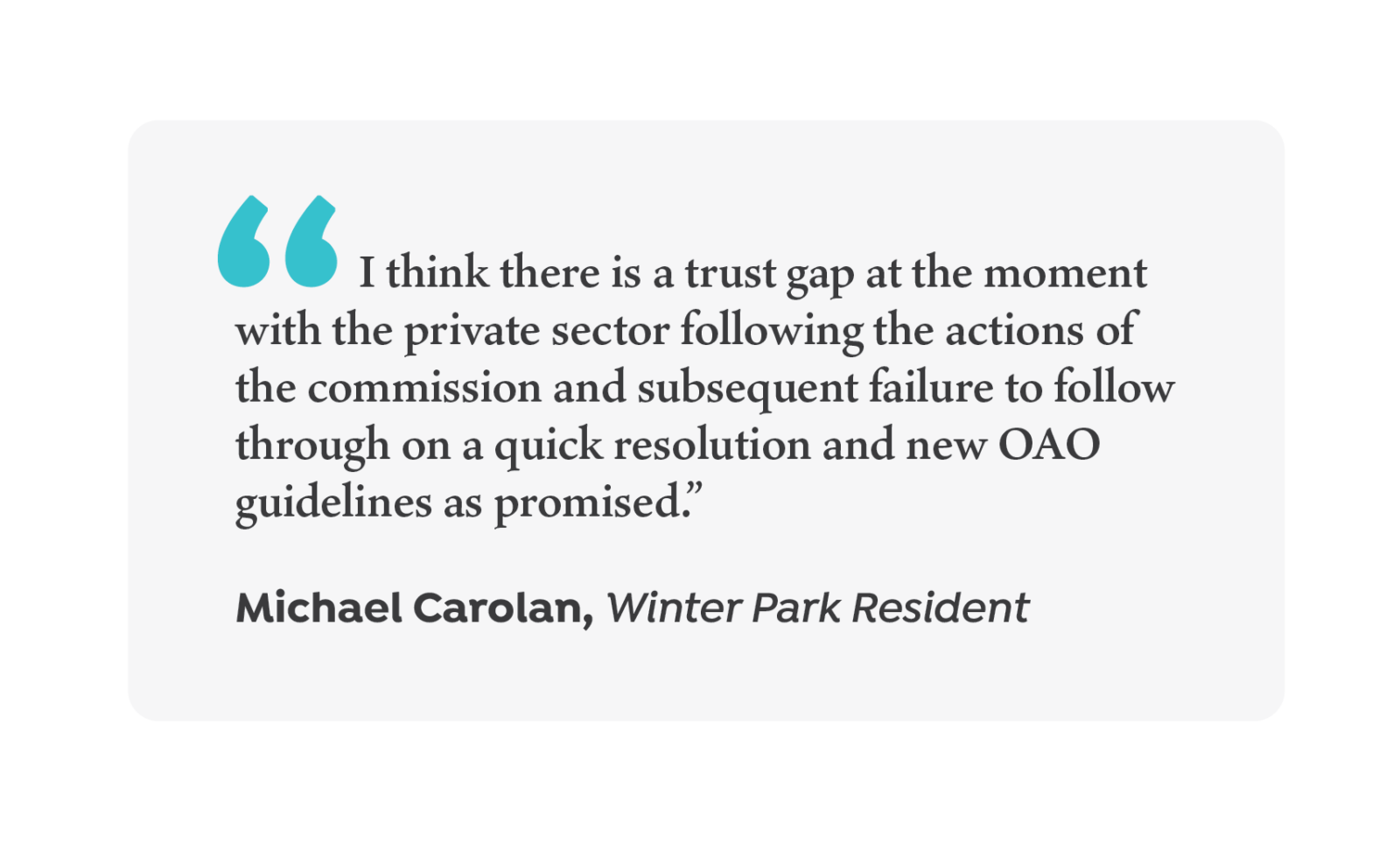
The commission has also received criticism for scheduling bimonthly OAO work sessions on the 2nd and 4th Thursday of each month. “The work sessions are at 1 p.m. in the middle of the day, in the middle of the work week, in the middle of summer, in the middle of a pandemic when very few people are able to listen in,” read an email, distributed by Demetree Global on August 7, titled “OAO 2.0 – A Public Process Hijacked.” This scheduling decision does not align with the commission’s claim that it desires public participation.
Regardless of pleas to deny the moratorium, the commissioners went on to vote in favor of the ordinance. The vote was followed by the reading of another ordinance, this one related to reduced construction-related noise, which was also approved.
